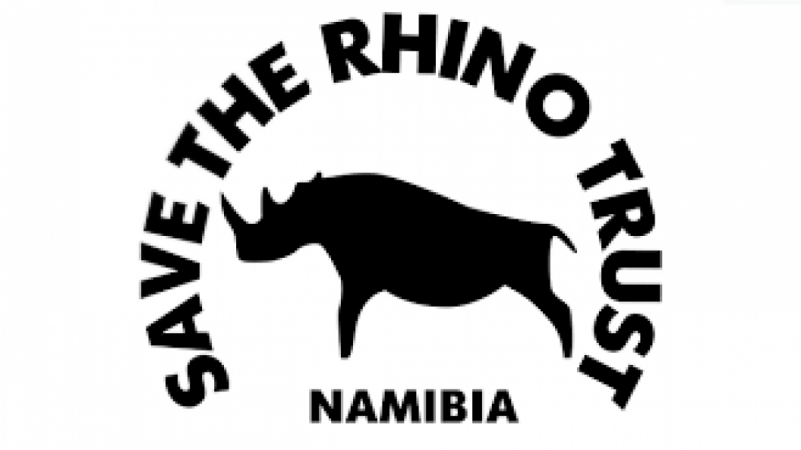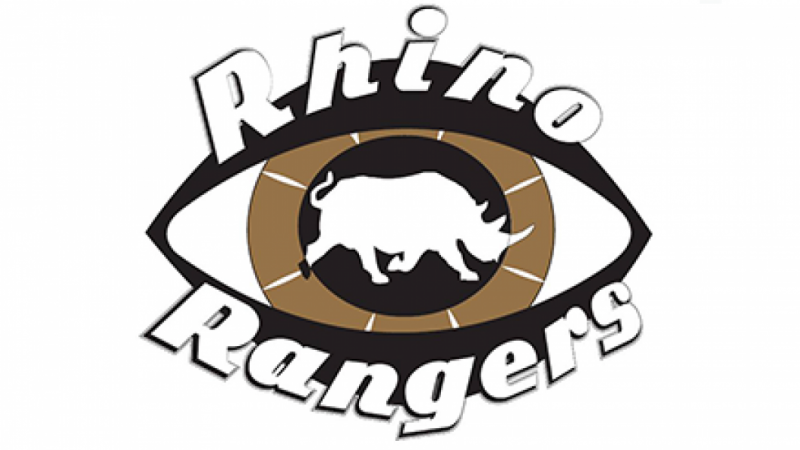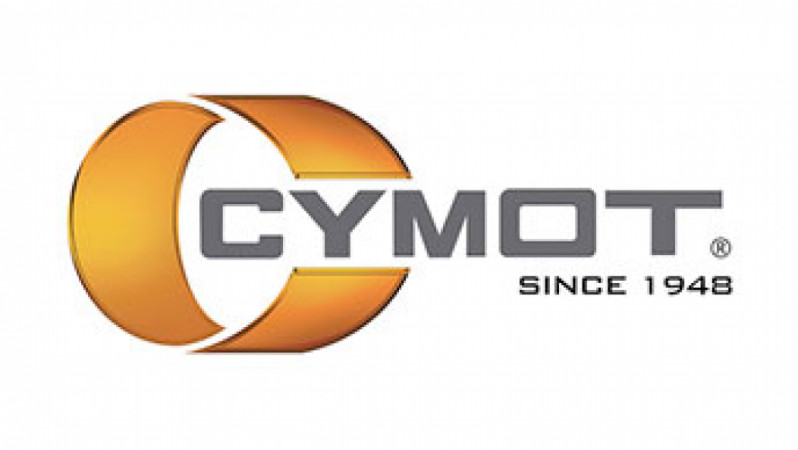Pack For Conservation
The Conservation Travel Foundation (CTF) was established in 2006, and it is the philanthropic branch of Ultimate Safaris. Since its inception, the CTF has been involved in helping with the conservation of Namibia’s unique population of free-roaming desert adapted black rhino, the only population of its kind in the world. Partnering with Save the Rhino Trust (SRT), which was founded in 1982 to curb the rampant poaching of the black rhino population found in North Western Namibia, the Conservation Travel Foundation has funded a variety of rhino-orientated projects, ranging from anti-poaching camps, to Rhino Ranger salaries and subsidence, to assisting with the much needed running costs of the organisation.
Since its inception, the Conservation Travel Foundation has been involved in helping with the conservation of Namibia’s unique population of free-roaming desert adapted black rhino, the only population of its kind in the world. Partnering with Save the Rhino Trust (SRT), which was founded in 1982 to curb the rampant poaching of the black rhino population found in North Western Namibia, the Conservation Travel Foundation has funded a variety of rhino-orientated projects, ranging from anti-poaching camps, to Rhino Ranger salaries and subsidence, to assisting with the much needed running costs of the organisation.
The first rhino census was conducted in 1986 and it revealed that there were only 40 individuals left in North Western Namibia. A much needed standardized computer database was developed in 2001 and this is now the largest and longest-running black rhino database in the world – with records dating back over 20 years. Applied research led by SRT helped guide the successful re-introduction of nearly 40 rhino into 13 Communal Conservancies between 2005 – 2011, and this has led to a current total population numbering hundreds of rhino across the region.
Sadly, the greatest threat to rhino worldwide in recent times is once again poaching as demand for the perceived medical benefits from rhino horn has seen prices exceed US$ 65,000 per kilogram, making this the most expensive commodity on earth - worth more per kilogram than gold, diamonds or cocaine. By 2007, SRT found itself having to accept that the current level of patrol effort at that time was not enough to protect the rhino in the north west of Namibia. Rather than hiring new staff and placing additional burdens on an already stretched budget, SRT designed and implemented a new Rhino Ranger Incentive Program which would train and equip a new generation of Community Rhino Rangers. These would be employed by communal conservancies, community-owned entities with a vested interested in rhino conservation, effectively doubling SRT’s ground monitoring force. The Conservancy Rhino Ranger Incentive Programme currently supports over 60 Rhino Rangers across 13 conservancies, which have increased field patrolling by 750%, rhino sightings by 450% and is estimated to have helped reduce poaching by 80% between 2013 and 2018. As a result, the rhino population has increased by a factor of 5 since SRT began their work in 1982.
These Rhino Rangers have dedicated their working lives to the protection of the rhino, spending the majority of their time in the field, covering large distances on foot and being exposed to the harsh elements of a desert environment. However, Rhino Rangers need to be equipped with field uniforms and gear, and those need replacement on an annual basis given the demands of the environment and the frequency of use. This has become a significant annual burden on the available budget, and covering these costs has never really been sustainable as it has relied largely on unpredictable ad hoc grants and donations. In recognition of this, and as part of our efforts to get Rhino Tourism to contribute towards costs of rhino conservation efforts and making the project more sustainable, Ultimate Safaris’ Conservation Travel Foundation launched the PACK FOR CONSERVATION programme in 2018.
Partnering with Cymot, a Namibia owned outdoor retailer with a significant online presence and a staunch supporter of Namibian conservation efforts, an online portal was created where you, the guest imminently travelling to Namibia, can purchase much needed field uniforms and gear on a cost recovery basis. Various options in terms of packages are available, and once an order has been placed and paid for online, the respective package is prepared and delivered to the Conservation Travel Foundation in Windhoek in time for your arrival and, where possible, taken on to your first hotel. The CTF will then facilitate the official handover of the uniforms and gear to SRT (ideally in your presence if this can be made to fit with your safari plans). Our hope is that this active and regular guest participation in the acquisition of these uniforms and gear will make this replacement and the continuing growth of the programme sustainable. There is also an additional benefit to this programme in that all uniforms and gear are purchased locally, contributing further towards the local economy.
Thank you in advance for your support. Even if
only a relatively small proportion of the guests travelling to Namibia
take part in this programme, actively contributing towards conservation
in Namibia, this will help make the whole Rhino Ranger project far more
sustainable.
How it works?
- Step 1: Register on the website as a user here.
- Step 2: Select Product here.
- Step 3: Proceed to check out (cart is on the top right of this page).
- Step 4: Pay by credit card (remember to include your cellular phone number).
- Step 5: Please note DELIVERY INFORMATION is defaulted, so you will only need to complete BILLING INFORMATION and PAYMENT METHOD.
- Step 6: Items are delivered directly to the Conservation Travel Foundation head offices in time for your arrival, and delivered to your first hotel where possible.
- Step 7: The Conservation Travel Foundation facilitates the handover of the purchased uniforms and gear to Save the Rhino Trust, ideally in your presence (safari itinerary dependant).
Contact Details
| Email: | info@conservationtravelfoundation.org |
| Tel: | +264 (0) 61 248137 |
| Fax: | +264 (0) 61 238707 |
| 24-hour emergency: | +264 (0) 81 141 2275 |
| Physical Address: | 5 Brandberg Street, Eros Park, Windhoek, Namibia |
| Postal Address: | PO Box 9970, Windhoek, Namibia |
Impact
Namibia boasts the greatest wildlife recovery story ever told in Africa and all guests travelling with Ultimate Safaris are already making a positive impact as they embark on their life enriching journey, just by visiting Namibia.
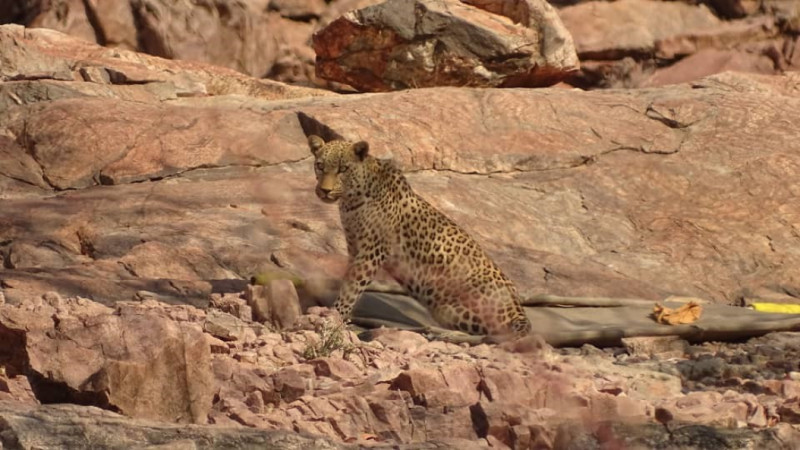
Damaraland Leopards
Research
The Damaraland Leopard Project was launched in early 2020 and it began as a co-ordinated camera trap study of leopard activity in the area. As a result of the work done by the Conservation Travel Foundation, and the support provided by our partners at Wildlife Protection Solutions, it has now become a full-scale research project.
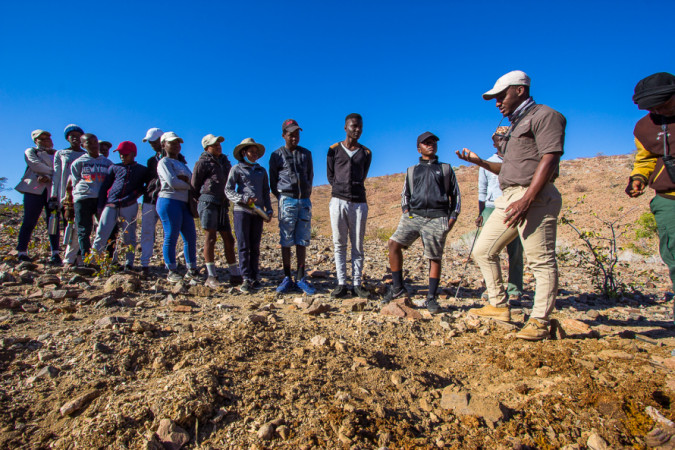
YOUNG DEFENDERS
YOUNG DEFENDERS
YOUNG DEFENDERS program embraces the ever-growing desire of families to allow their children a true wilderness experience, while at the same time allowing them to learn about conservation and to be a part of those efforts.
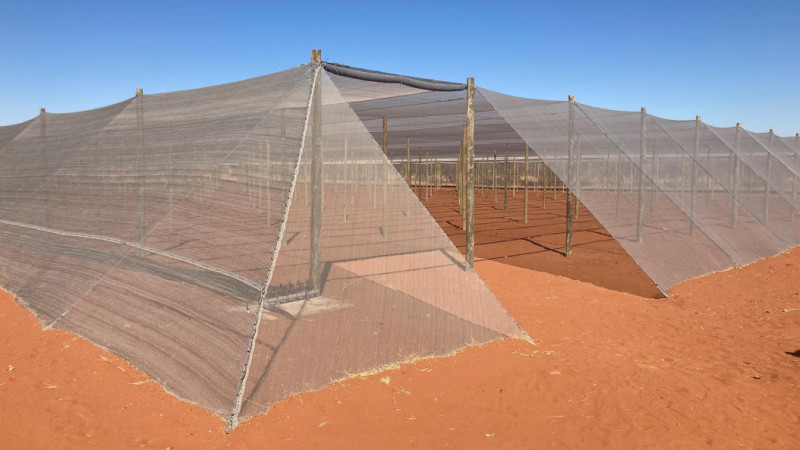
//Huab Food Security
//Huab Conservancy
As part of our continued impact investment into the //Huab Conservancy, we have created 1 hectare of shaded and watered agricultural land, a large chicken coop, storage facilities, and a cool room.

Scholarship Program
Social Responsibility Investments
Ultimate Safaris and the Conservation Travel Foundation have been working to support the Grootberg Primary School for over a decade.
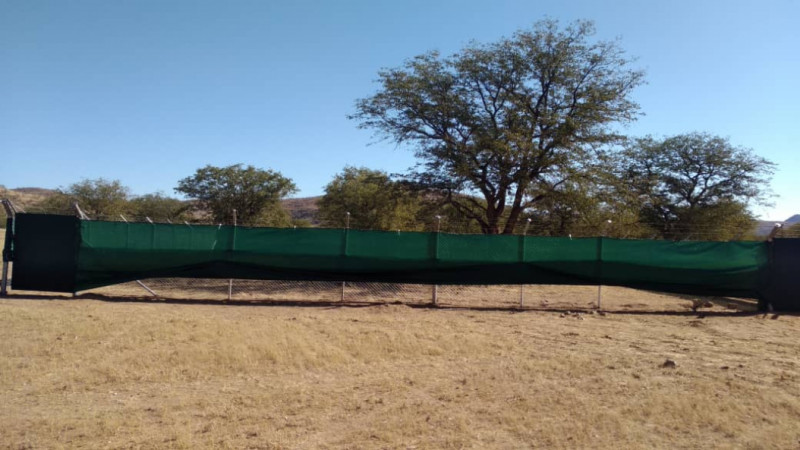
Predator Proof Kraals
Human Wildlife Conflict
Namibia has faced extremely arid conditions in the North West for several years, and this drought situation has inevitably increased competition for resources and added to the pressure of human lion conflict in the area.
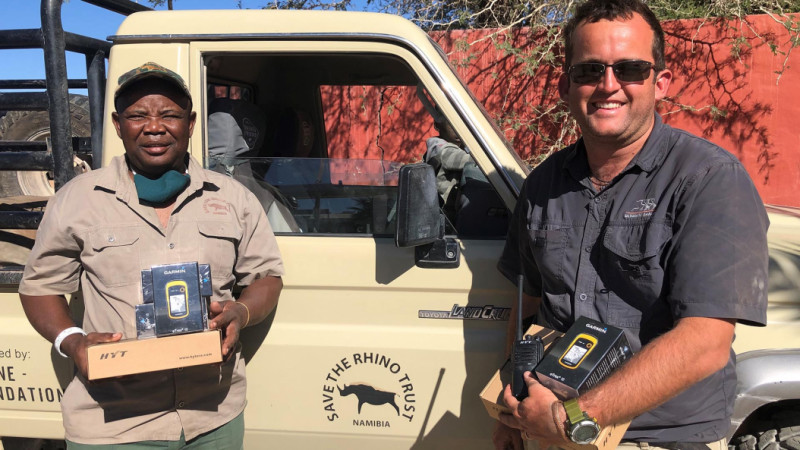
Radio Communication
Doro !Nawas Conservancy
The Conservation Travel Foundation has erected two VHF radio transmitters in the heart of Damaraland, one in each of the //Huab and Doro !Nawas Conservancies.
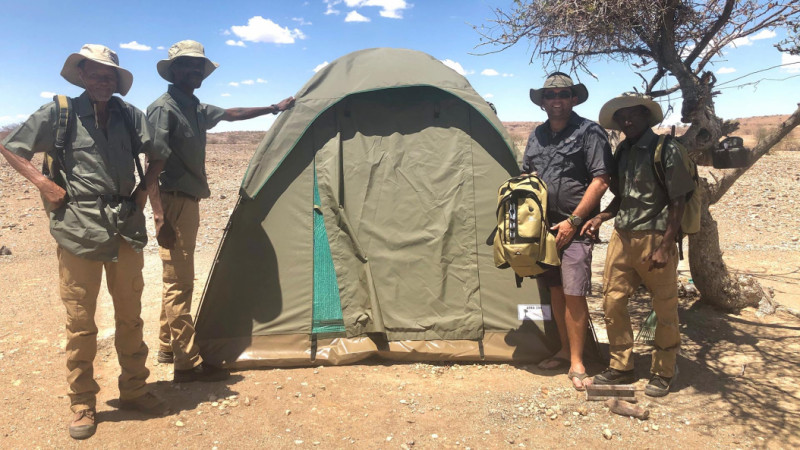
Rhino Ranger Accommodation
//Huab Conservancy
Rhino Rangers in Namibia fulfil a crucial function in terms of monitoring rhino and curbing poaching, but they endure extreme conditions whilst fulfilling their roles.
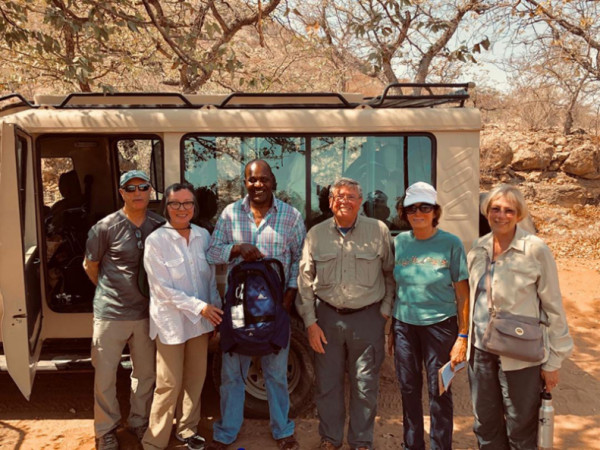
Pack for Conservation
Funding And Support Partners
The Conservation Travel Foundation works closely with Save the Rhino Trust to conserve Namibia’s desert-adapted black rhino. A major threat to rhino is poaching, and the Rhino Ranger programme was designed specifically to increase patrols and monitoring of Namibia’s rhino.

Grootberg Primary School
Social Responsibility Investments
Grootberg Primary School is a small, rural school in the Erwee Village, located in the Khoadi Hoas Conservancy. Th
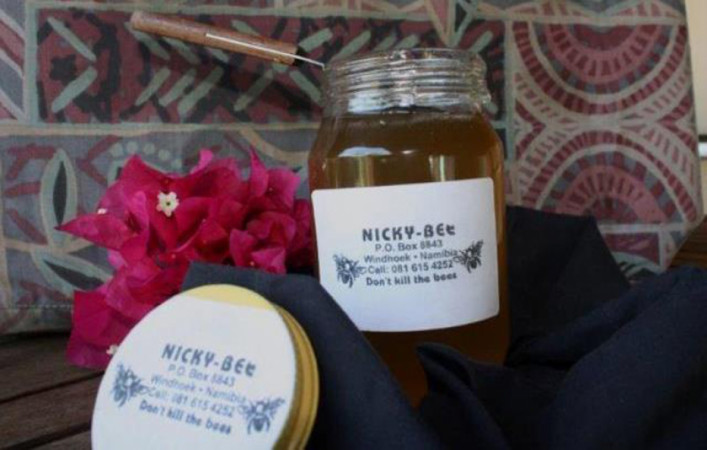
Nicky Bee Farm
Social Responsibility Investments
Nicklaas Eksteen, is well-known in Windhoek as the “bee charmer”. He learnt the skills from his grandfather, and his dream was to have his own apiary and to sell honey with his own brand name.
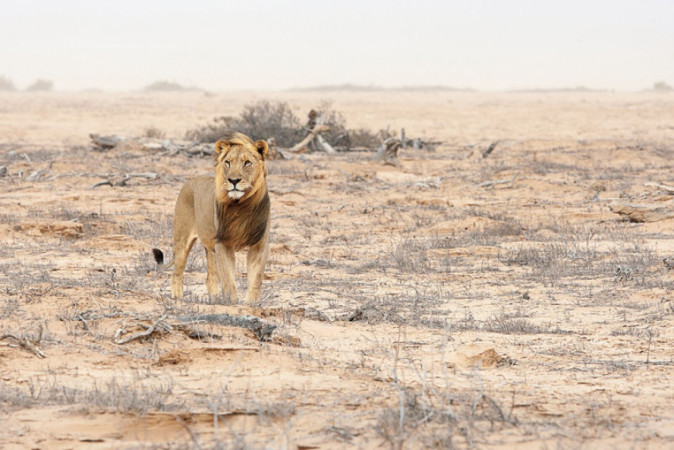
Lionscape Coalition
Funding And Support Partners
In March, 2019, the Lion Recovery Fund formed a new initiative - the Lionscape Coalition. This allows Africa’s top tourism operators to take a lead in supporting on-the-ground conservation work and to encourage their visitors to support efforts to secure the future of wild lions.
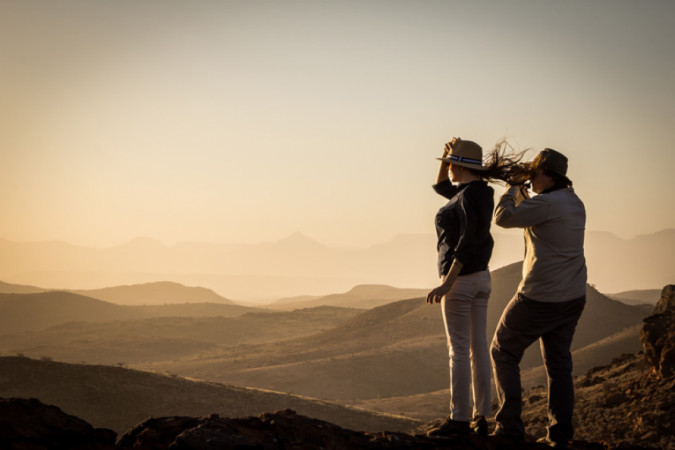
//Huab Under Canvas
//Huab Conservancy
Ultimate Safaris was approached in 2016 to consider investing in the //Huab Conservancy which, on account of its remote location, had been overlooked for tourism development.
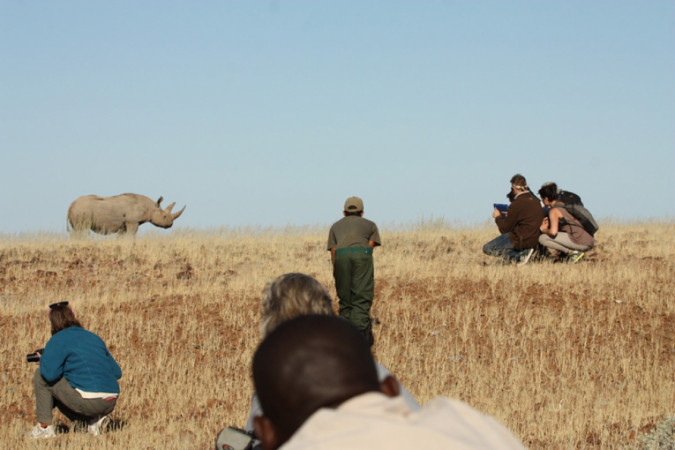
Rhino Awareness Campaign
Save the Rhino Trust
The Conservation Travel Foundation is a key sponsor in the annual Kunene Rhino Awareness Campaign, which emphasizes the importance of rhino to rural communities.
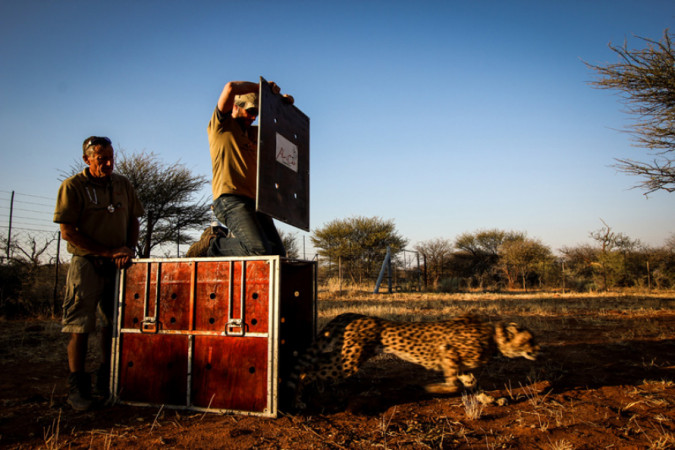
AfriCat Foundation
AfriCat
The Conservation Travel Foundation has long supported the AfriCat Foundation (www.africat.org), with funds generated through the Conservation Travel Safaris run by Ultimate Safaris.
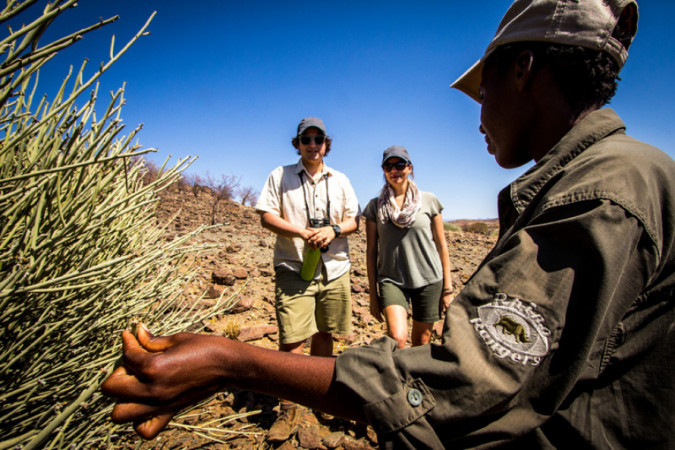
Rhino Rangers
//Huab Conservancy
The Conservation Travel Foundation provides financial and operational support for five //Huab Rhino Rangers who patrol the area, and protect and monitor the rhino population.
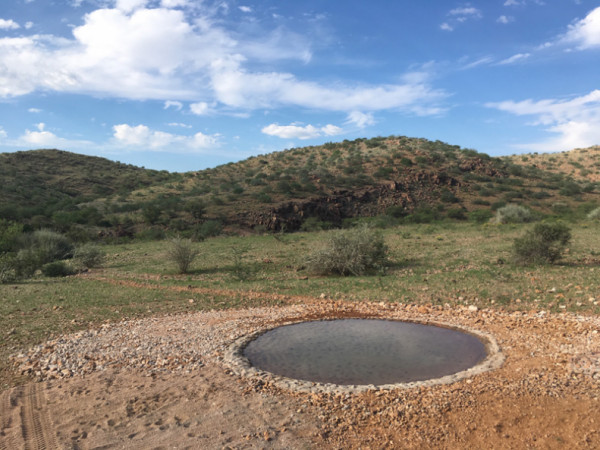
Wildlife Water
//Huab Conservancy
The wildlife populations in the //Huab Conservancy, including rhino, live in a hyper-arid environment, where natural spring surface water is extremely limited and rivers are erratic and ephemeral.
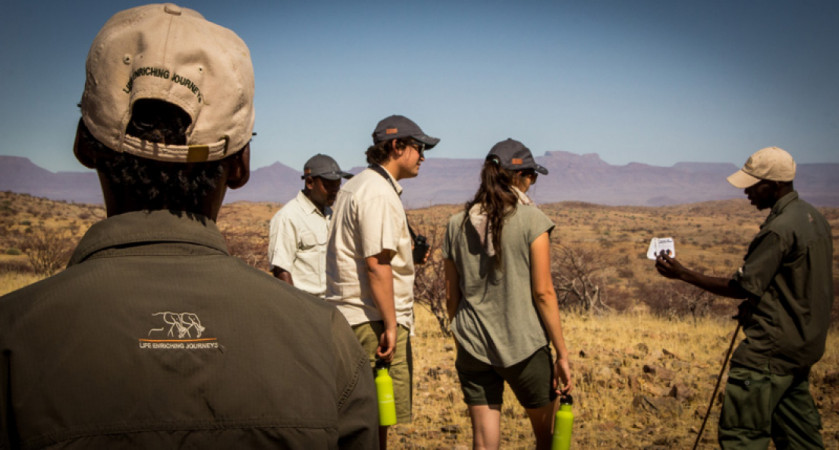
Wildlife Credits
Funding And Support Partners
In an effort to place a pragmatic value on wildlife, both ecological and economic, the Wildlife Credits Initiative was formed by a number of local and international NGOs, with support from the Conservation Travel Foundation.
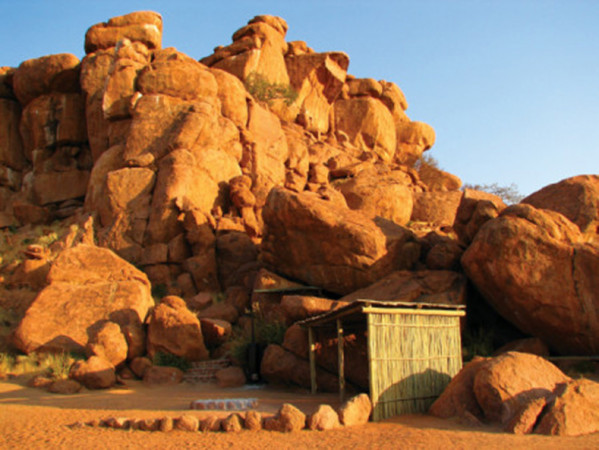
Granietkop Campsite
Doro !Nawas Conservancy
Tourism is a primary economic enterprise option for the Conservancies to exploit, and while leases for the establishment of small, high-end lodges and camps are a key element within that option, so is the provision of facilities for self-drive and lower paying tourists - such as rustic campsites.
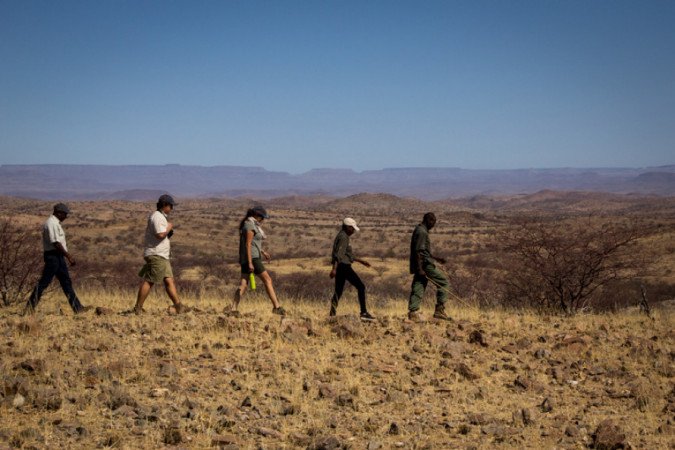
Rhino Rangers
Doro !Nawas Conservancy
The Doro !Nawas Conservancy is home to a number of Namibia’s desert-adapted black rhino. Since 2020, the Conservation Travel Foundation has supported Doro !Nawas Rhino Rangers.
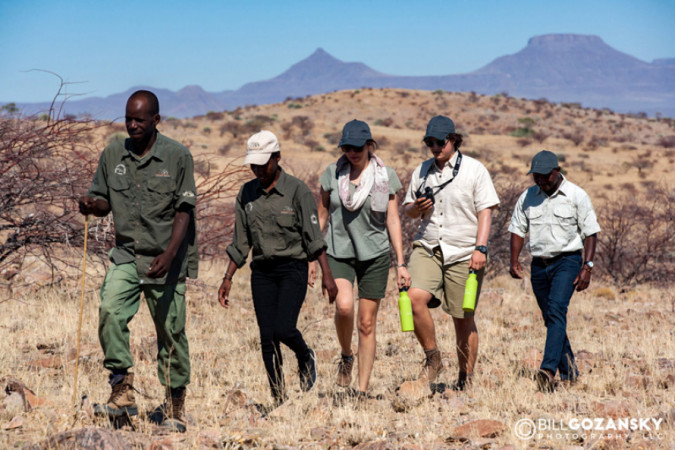
Camp Onduli
Doro !Nawas Conservancy
In 2018 Ultimate Safaris entered into a Joint Venture Agreement with the Doro !Nawas Conservancy to develop a 12 bed camp within the Conservancy, under a similar agreement to that with the //Huab Conservancy.
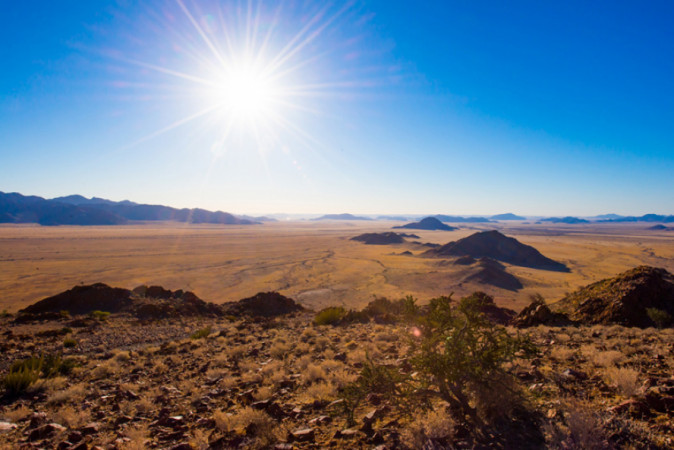
Reclaiming nature
Namib Tsaris Conservancy
Ultimate Safaris operates two safari ventures on the private Namib Tsaris Conservancy, namely The Nest @ Sossus and Camp Sossus. The conservation levies paid to the Conservancy help repay the costs of the rehabilitation of the land after years of inappropriate stock farming.
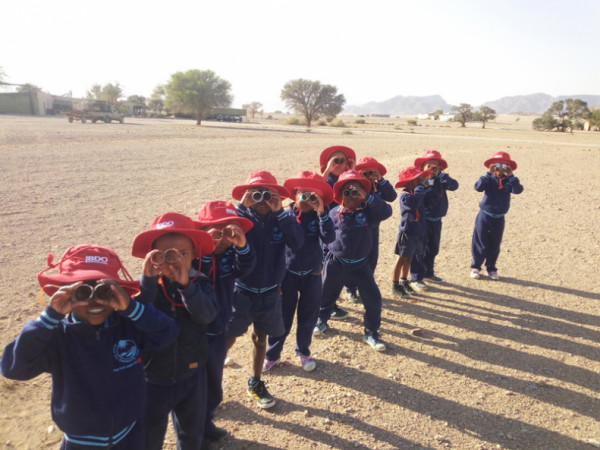
Little Bugs
Social Responsibility Investments
Little Bugs (www.litle-bugs.org) is a free Early Childhood Development Centre and lower primary school, set up by the Namib Sky Foundation, located near Sossusvlei and the Namib Tsaris Conservancy in south-central Namibia.
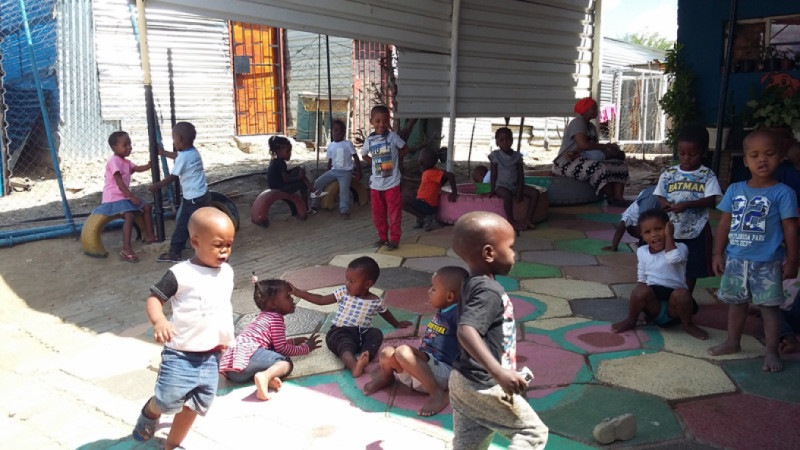
Bright Star
Social Responsibility Investments
Bright Star is an informal orphanage in one of the lower income township suburbs of Windhoek, driven by some extraordinary women.
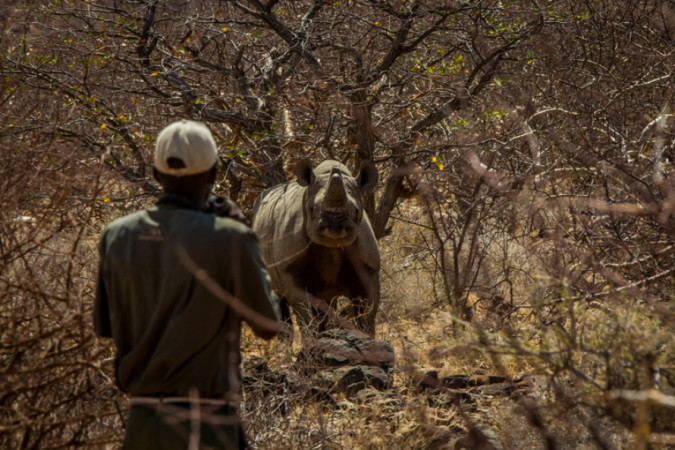
Rhino Ranger Programme
Save the Rhino Trust
Save the Rhino Trust Namibia has worked tirelessly over many years to conserve and protect the desert-adapted black rhino of the Kunene and Erongo regions.
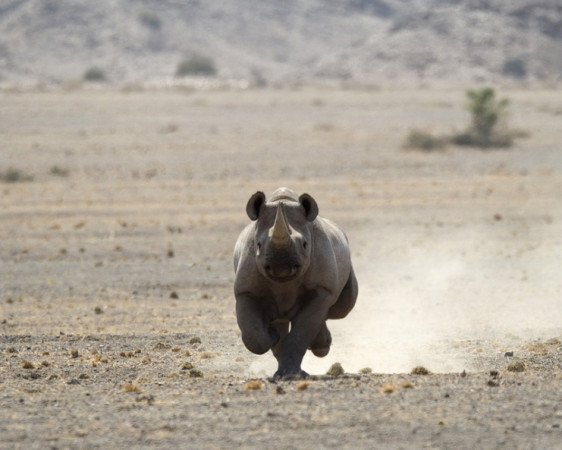
Rapid Response Fund
Ministry Of Environment And Tourism
The Ministry of Environment and Tourism (MET) have run a successful black rhino translocation and re-stocking scheme with private farmers and communal conservancies for a number of years.
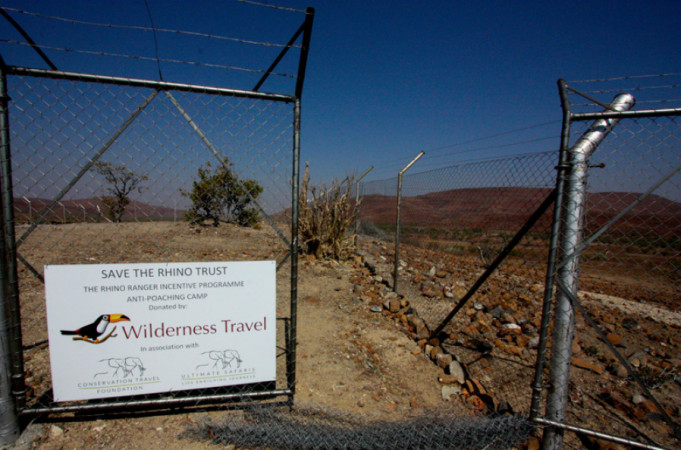
Rhino Anti-Poaching Camp
Save the Rhino Trust
The Conservation Travel Foundation provided funds for SRT to construct a Rhino Anti-Poaching Unit Camp in the area of prime rhino habitat, to help counter the threat of rhino poaching in the Kunene Region.
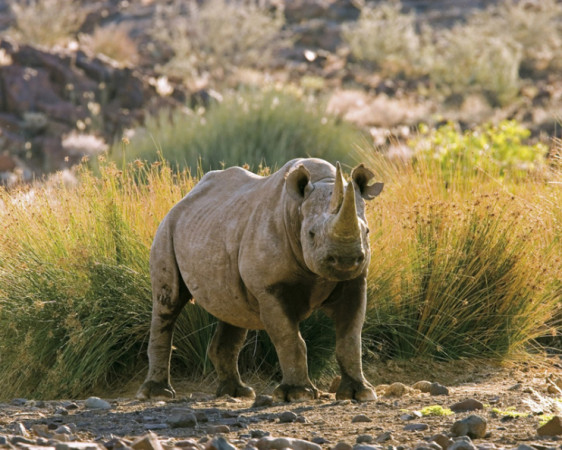
Ongoing ‘unassigned’ support
Save the Rhino Trust
The Conservation Travel Foundation also supports SRT with regular contributions that are not assigned to any particular project, but which allow SRT to allocate the funds to meet unspecified operational requirements that arise, or are not covered by other ring-fenced funds.
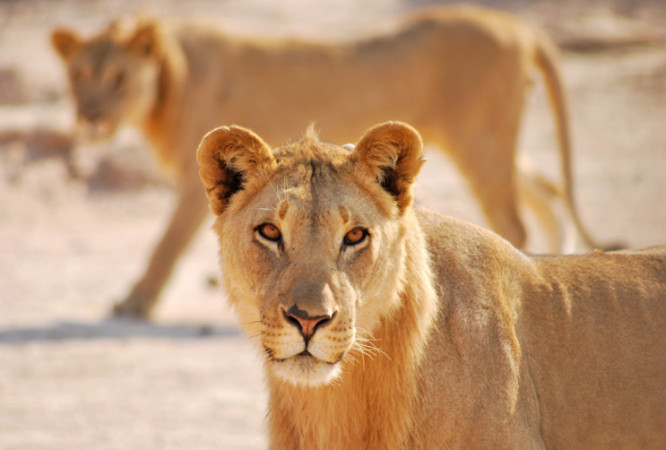
Desert Lion Project
Desert Lion Project
The Conservation Travel Foundation has provided funding to help cover operational costs in the development of the Lion G
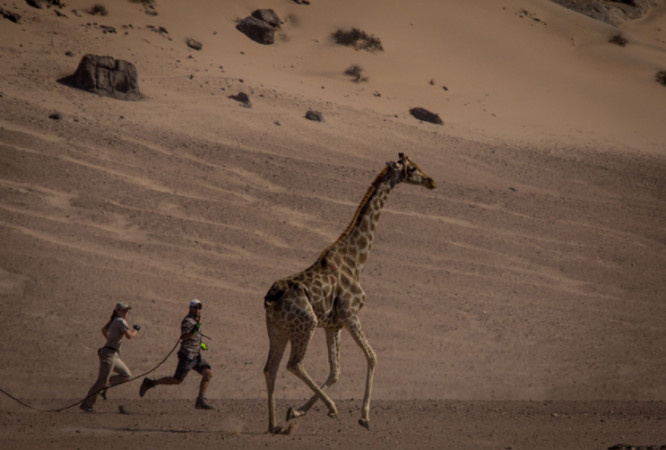
Giraffe Conservation Foundation
Giraffe Conservation
The southern African species of giraffe are not yet as threatened as the eastern and northern species which are highly endangered.
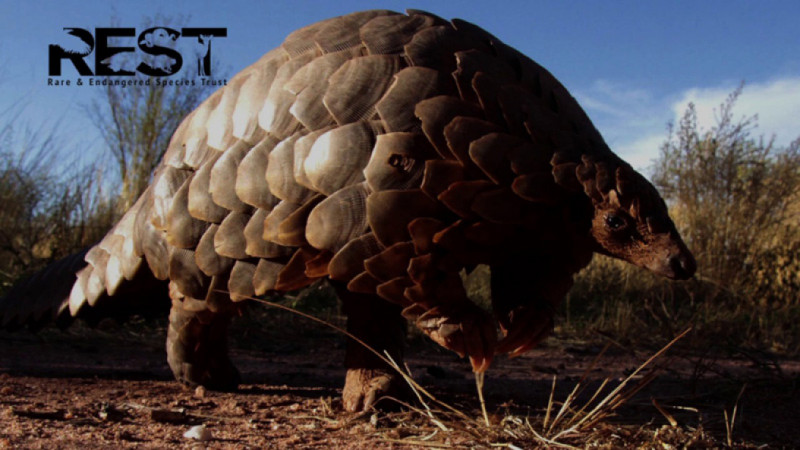
Rare and Endangered Species Trust (REST)
REST
EST is a Namibian Non-Profit Organisation that focuses its conservation efforts on six critically endangered species - namely, the African wild dog, the pangolin, the dwarf python, the spotted rubber frog, and the Cape Griffon vulture.
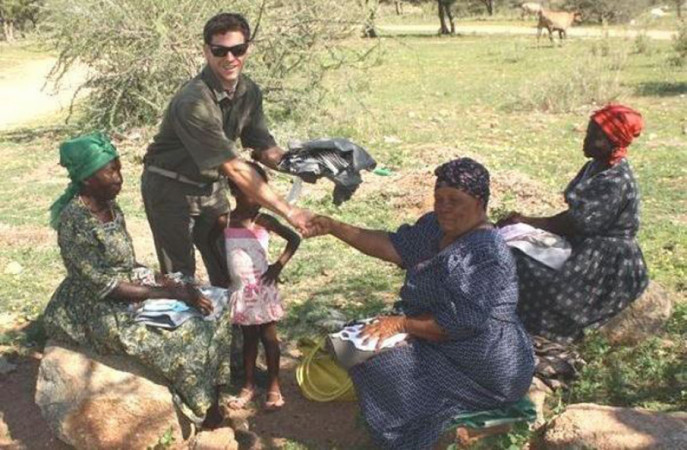
Justine's Laundry Service
Social Responsibility Investments
When Justine Gaingos, a longtime staff member of Ultimate Safaris, retired, The Conservation Travel Foundation donated her the machinery and house modifications to establish a laundry service in the suburb of Katutura.
